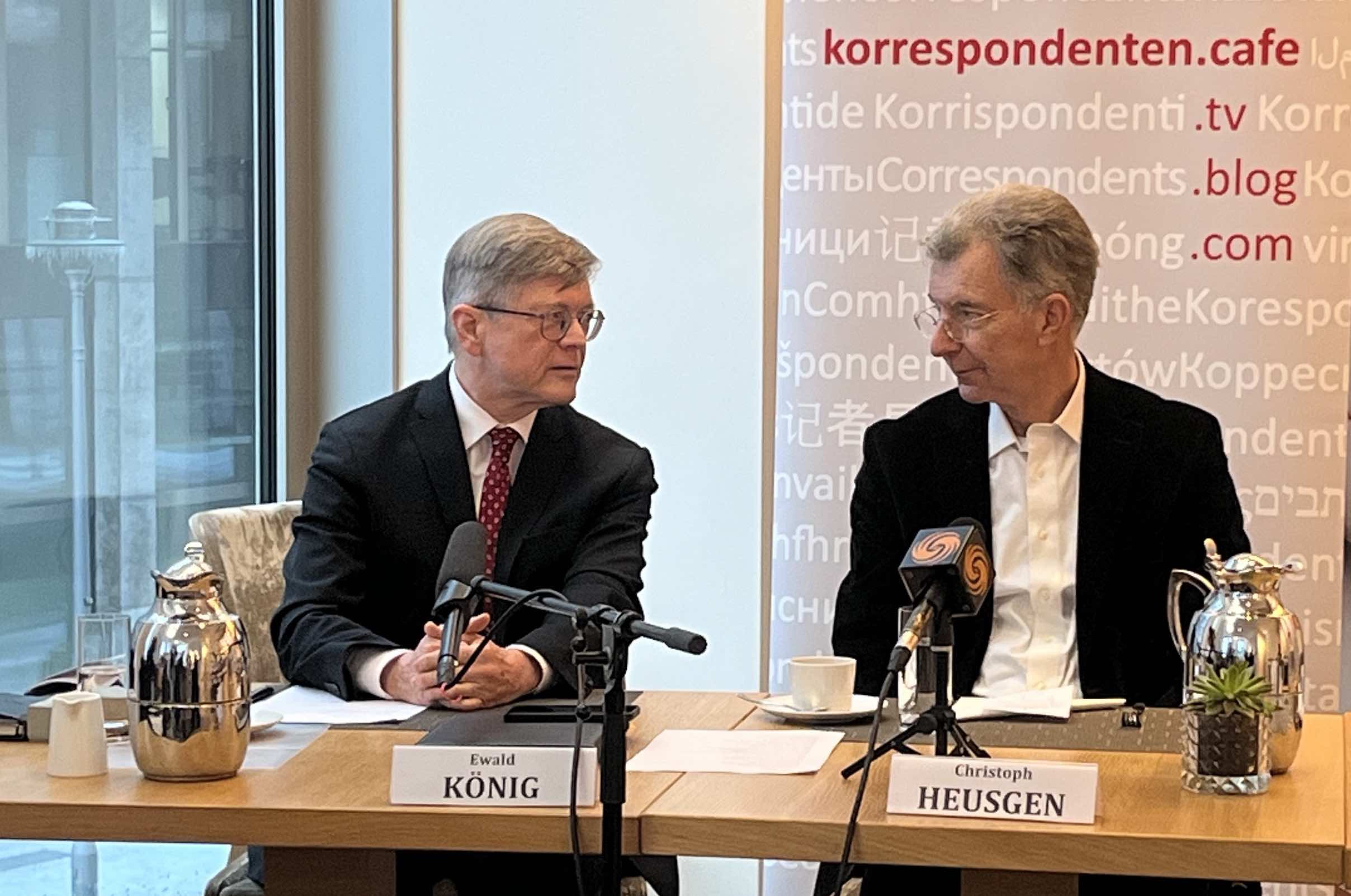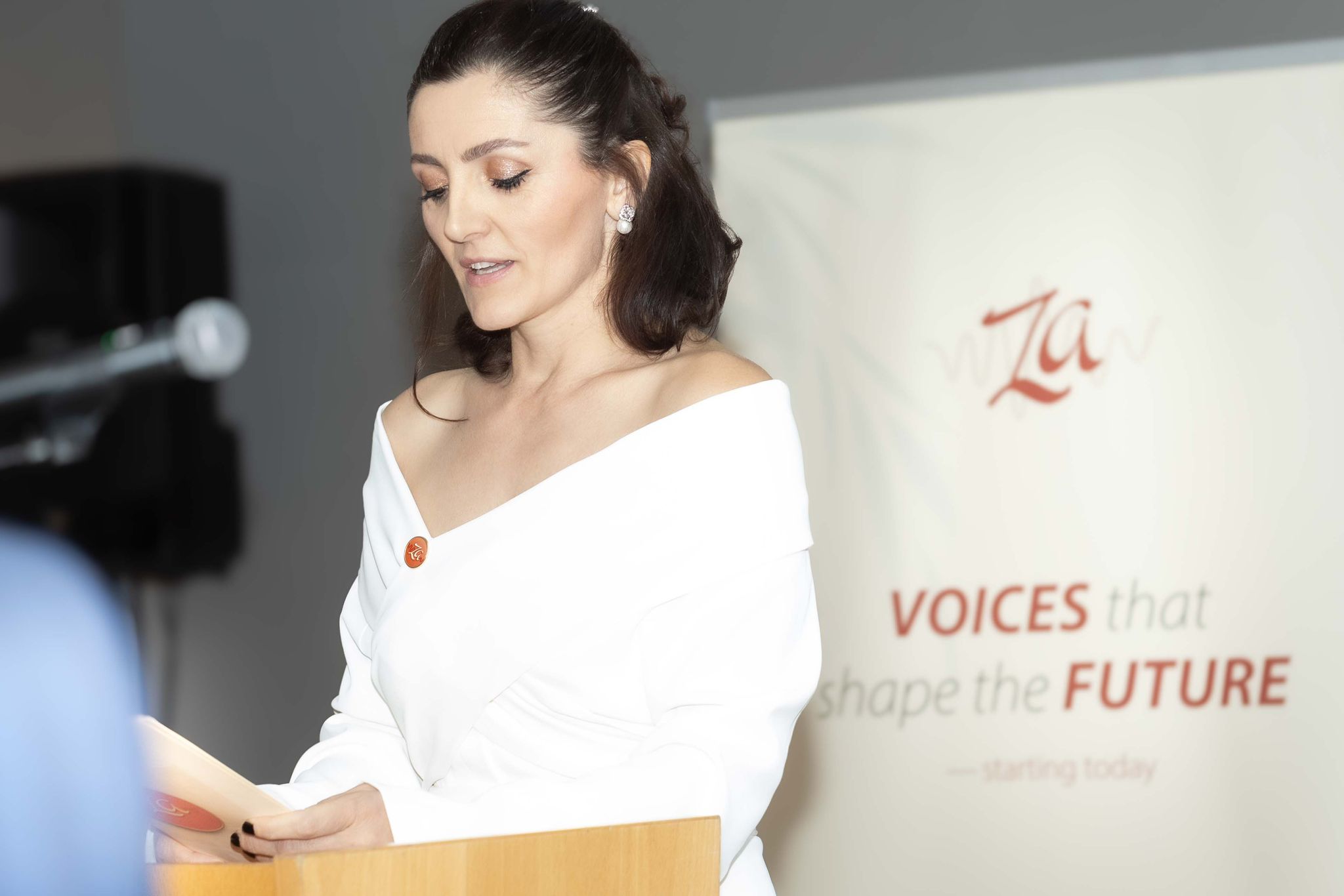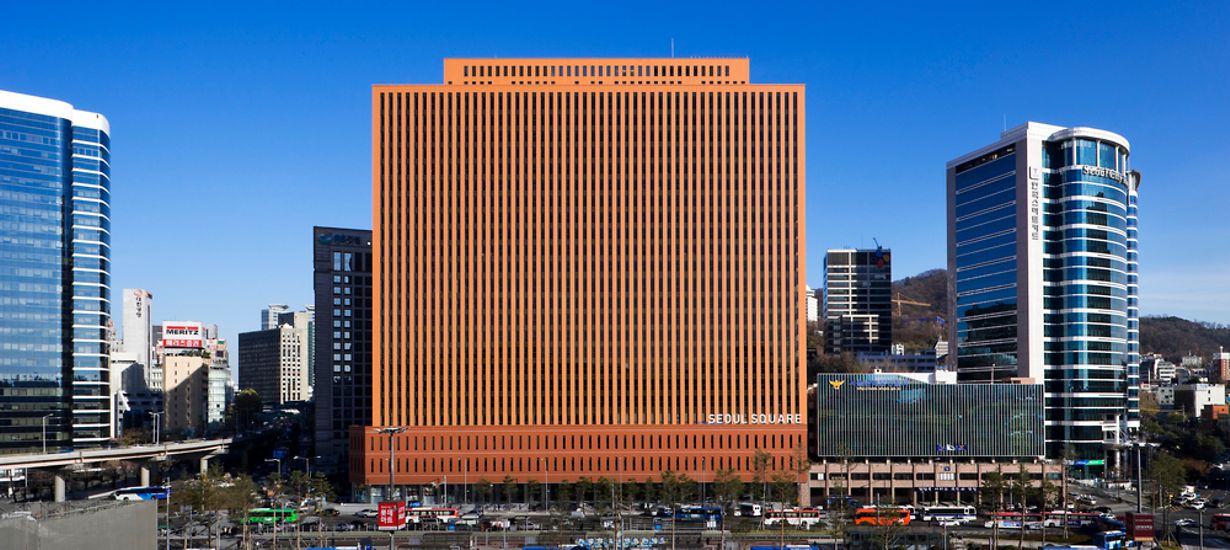diplo.news
How war and peace are gradually blurring
By Gudrun Dometeit

Alexander struggles to get his words out, walking is difficult for him, and he can no longer use his right arm. It happened a year ago. The Ukrainian had just finished clearing mines with his squad when Russian artillery fire broke out – in the Kupjansk region, the embattled, strategically important city in northeastern Ukraine, which the Russian army is now said to have invaded via a tunnel. The 42-year-old suffered severe head injuries, and the outline of the large titanium plate that doctors implanted in his skull is clearly visible. “Look,” says his mother, tears in her eyes, handing visitors a notebook with writing exercises. “He has to learn everything again. He's now trying to write with his left hand.” She visits her son as often as possible at the rehabilitation center in Kiev, where he has been for a year. It is one of 20 centers in the country established by the Ukrainian Viktor Pinchuk Foundation for war wounded. Pinchuk, one of Ukraine's richest men and son-in-law of former President Leonid Kuchma, made his money primarily in the metal industry. Since the war, he has been increasingly using it for charitable purposes.
Alexander was one of the first to volunteer for the army shortly after the Russian invasion in February 2022. “I took the oath on March 1, 2022,” he remembers. In an express course of a few weeks, he, a civilian driver, was prepared for military use. Why did he, father of two children, join the military service so quickly? “I wanted to live in a free country.” He insists he does not regret signing up. And yes, he says, struggling for words, he would continue to fight if it were possible. And yet, when asked about his greatest wish for the future, he answers decisively and with a speed that is now unusual for him: “I want this war to end.”
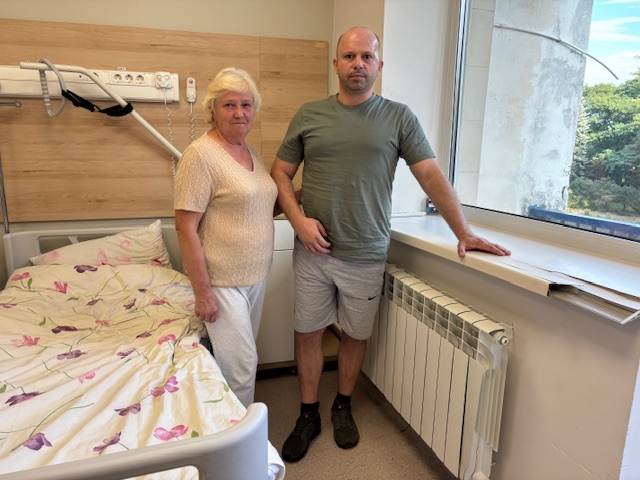
How this could happen was discussed at the same time during the visit to the rehabilitation center, a few kilometers further east in a luxury hotel in Kiev, by participants in the Yalta European Strategy (YES) – another initiative launched by oligarch Pinchuk in 2006. Since Russia has occupied Crimea, the meeting no longer takes place in the summer palace of the last tsars in Yalta, but in Kiev. The conference is intended to bring Ukraine closer to the West - in addition to providing useful networking opportunities for Pinchuk. Supporters of Ukraine from Europe and the USA are regularly invited, forming a kind of family and friends club. Over the years, disputes with Russia have replaced issues such as political and economic reforms in Ukraine. This time, Günter Sautter, foreign policy advisor to Chancellor Friedrich Merz, also officially participated as a representative of the Federal Chancellery. It is intended as a signal that Germany wants to demonstrate its new determination to support Ukraine, which some felt was lacking during the traffic light coalition. This time, however, fewer US politicians are attending. That, too, is a signal.
So how can we end this war that has been raging for three and a half years, which is bringing new victims and more destruction every day? How to increase pressure on Russia to start serious negotiations? And how can we convince Donald Trump, whom some conference participants see as indispensable for a peace agreement, to work together with the Europeans? The fighting has killed and wounded at least 500,000 on the Ukrainian side and up to one million on the Russian side. As always in war, the figures can only be estimated, with each side reporting the other's losses as significantly higher than its own. The Ukrainian government recently estimated the reconstruction of the country at 850 billion euros, half of which, in their opinion, should be financed from frozen Russian assets. The costs of war are increasing in every way. A year ago, Roksolana Pidlasa, the young chairman of the Budget Committee in the Ukrainian Parliament, reported that Kiev had spent 140 million euros a day on the war, now the figure is 175 million euros. The defense budget accounts for one-third of gross domestic product. This is a record high; according to the peace research institute SIPRI, even Israel spends only around nine percent, and Russia around seven percent.
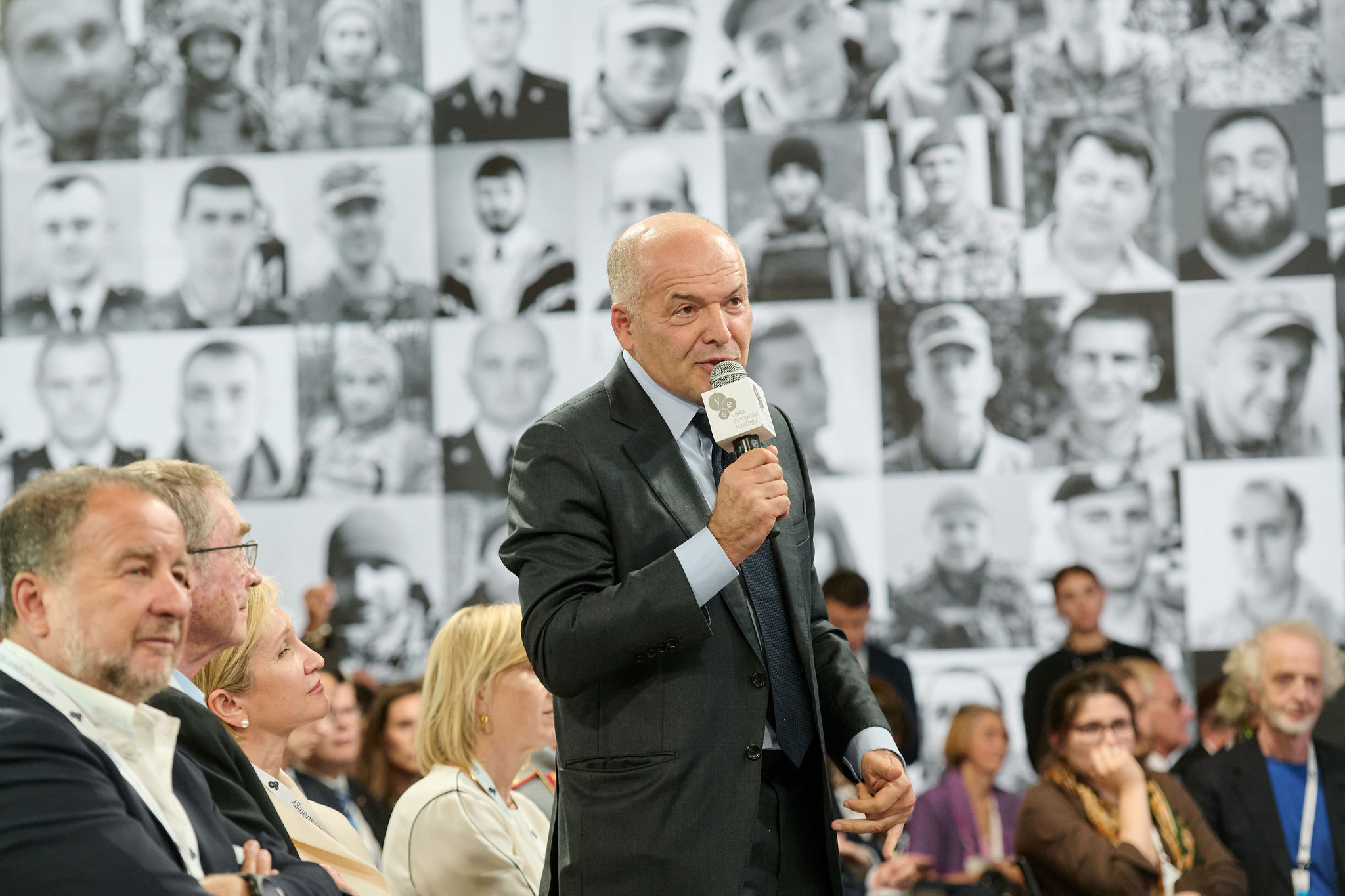
“The Russian economy is in a disastrous state,” said Pinchuk, “only super-strong sanctions and super-strong support for us will help the enemy make the right decision.” German Major General Christian Freuding, designated army inspector and previously head of the Ukraine Special Staff at the Ministry of Defense, was also convinced that Russia could be forced to the negotiating table with military, financial and economic means. However, French short-term Prime Minister Gabriel Attal, now chairman of the French-Ukrainian friendship group in parliament, warned that it was not enough to simply impose more sanctions. New measures must also be more effective, targeting where it hurts Russia the most – the energy sector, refineries, the tanker shadow fleet, and countries that buy oil and gas from Russia. The European Union's sanctions to date, including oil price caps and sanctions on individual tankers, appear to have been largely ineffective.
“The war will end when Russia's oil and gas revenues dry up,” confirmed Timofiy Mylovanov, president of the renowned Kyiv School of Economics. However, this is likely to be complicated, as Hungary and Slovakia, which continue to import oil and gas from Russia via the Druzhba pipeline, would also have to be convinced within the EU. Their imports are small compared to the quantities that Turkey, India, and China purchase from Moscow. However, US President Donald Trump has now stated that he will only join in with sanctions if all NATO countries do so and the EU also agrees to impose high tariffs on India and China. It is considered unlikely that both demands will be met, and there is reason to suspect that Trump is only using them as an excuse not to take action against Russia.
Europeans must act more decisively towards Trump, advises a US diplomat who served in the first Trump administration, in conversation with diplo.news. “Asking him, 'please, what would you do...' doesn't work. Trump hates taking responsibility. Europeans must be clear about what they want to do. Then he can join or not.” Historian Timothy Snyder was even more definitive: “Waiting for Trump is a waste of time.” He wondered why Europeans still haven't converted their economic strength into political and military power.

However, they are currently preparing what was previously considered taboo and is now intended to serve as a powerful means of exerting pressure on Russia: reparations bonds on Russian central bank reserves totaling €255 billion, most of which are lying dormant in accounts in Europe and the EU. There are legal and – among other things, from the German government's point of view – economic reasons against confiscating the money, because the European market could lose its reputation as a safe investment location. So far, only the interest has been used to provide aid to Ukraine. According to the new idea now circulating, the reserves would be invested in new deposits, with Russia remaining the legal owner of the money. However, Europeans, Britons, and G7 countries could use it to take out loans for Ukraine. The money would only be repaid if Russia paid reparations for war damage. So far, Belgium, where the financial services provider Euroclear manages most of Russia's national treasury, appears to have the most concerns.
While Europeans and Americans are still discussing options, Russia and Ukraine have long since created facts on the ground, at least in military terms. In recent days, Moscow has bombed a government building and the EU representative in Kiev and apparently sent a drone squadron across the Polish border, as well as into Romanian airspace and across the Warsaw government palace at the beginning of the week. Russia hit Ukraine with 3,500 drones and 190 rockets in September alone. Conversely, Kiev destroyed one of the country's largest refineries in Kirishi in the Leningrad region over the weekend, having previously bombed a pumping station in Primorsk, from which crude oil is transported to the port of Ust-Luga, in one of the most massive air strikes to date using long-range drones. From there, it is loaded onto tankers from the so-called Russian Shadow Fleet to sail across the Baltic Sea. According to Russian reports, two of them were hit. At least three people died in Ukrainian explosives on Russian railway lines also near Vladimir Putin's hometown of St. Petersburg.

The war between Russia and Ukraine has long been regarded as an example of what the battles of the future could look like. At least 75 percent of the weapons used are now drones. Ukraine estimates the daily requirement at 1,000, most of which its own production sites can now cover. Hardly any other country now has as much experience in electronic warfare as Ukraine. But Russia is also learning quickly and adapting to the changed circumstances, say Ukrainian military officials. The Russians analyze carefully and are good at strategic planning. However, Ukraine's strength lies in the creativity of its army. “In any case, we have disproved the myth of an invincible Russia,” says a colonel.
Kiev wants to invest parts of the new budget in new interceptor drones, as a cheap alternative to expensive Patriot US defense systems against Russian Shahid or Geran drones that entered Polish and Romanian airspace. All YES participants agree that Russia wanted to test NATO's responsiveness with this move. Many say behind closed doors that this response was not convincing. The Polish air defense fought off just four out of 19 drones. That is why, in the words of Wolfgang Ischinger, former chairman of the Munich Security Conference, the integration of western Ukrainian airspace into NATO air defense cannot be an answer to Moscow's provocation. NATO should rather learn from Ukraine. “Drones that cost a few hundred or thousands of euros each must be combated with millions of expensive fighter aircraft and correspondingly super-expensive ballistic weapon systems. You fight locusts with bombers. That's where I see the great insight value of this event: we in NATO apparently have a lot of catching up to do to emulate Ukraine. It could have shot down these drones on its territory."
If one were to summarize the spirit of the expert meeting, even if it only reflects a portion of the spectrum of opinions, it was not characterized by particular optimism. Peace is not in sight anytime soon, the strategies of Europeans and Americans are unclear and do not agree, or in the words of Finland's President Alexander Stubb, the lines between war and peace are gradually blurring. Former Lithuanian Foreign Minister Gabrielius Landsbergis even stated: “We must admit that this war cannot be resolved diplomatically, but only on the battlefield.” When asked whether Ukraine would make concessions such as giving up territory for the sake of peace, the unanimous answer was no. The young commander of a drone unit said that she would consider this a betrayal. Ukrainians like her partner would then have died in vain. Moreover, Putin cannot be trusted; he will strike again anyway.
Based on the findings of Austrian political scientist Friedrich Glasl on the course of conflicts, the Russia-Ukraine war is now at a dangerous stage, namely almost at the end of the phase model he developed, which involves the mutual destruction of vital infrastructure, with the West becoming increasingly drawn in and a retreat becoming increasingly difficult.
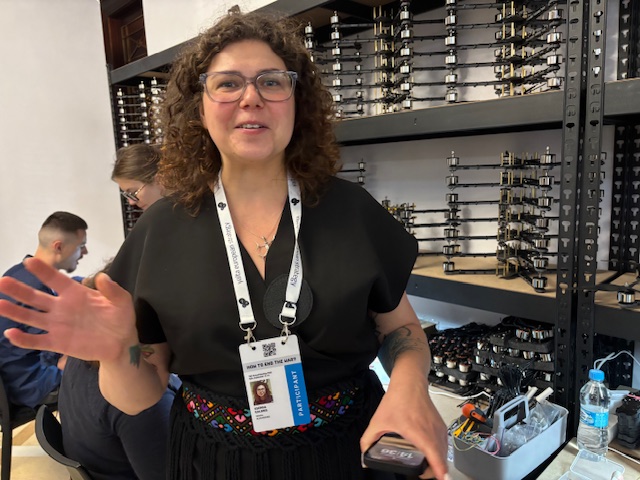
Whatever the political decision may be, the war has completely changed the lives of many Ukrainians. Not only that of former driver Alexander, who is scarred by his serious injuries. On the sidelines of the YES conference, some Ukrainians demonstrated how to assemble the miracle tools of this war in front of walls with carefully stacked mini-drones. They are all working voluntarily for their boss, Kseniia Kalmus, who founded the company Klyn a year ago. Instead of flowers, the 37-year-old florist now collects donations to buy components for the missiles and then have them assembled, as well as for combat, reconnaissance, and transport drones that bring medicine, water, and blood supplies to the front lines. The components all come from Ukraine, with only the camera coming from China. The transition from arranging artistic bouquets and loving beautiful plants to producing potentially lethal projectiles seems a little surreal to Kalmus herself. “I even asked a psychologist for advice,” she says. The psychologist advised her to see the production of drones as a kind of art, art that is supposed to save her country.


